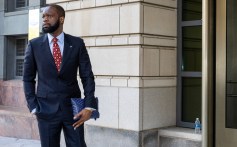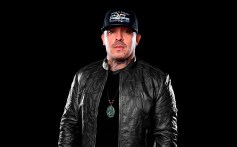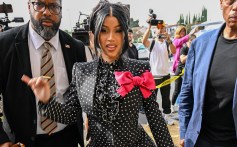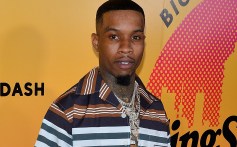trial
Trending on Billboard
THE BIG STORY: It’s almost 2026. Music lawyers are grappling with streaming fraud, deepfakes and trillion-dollar battles over artificial intelligence. And the U.S. Supreme Court is talking about … file sharing?
Nearly 30 years after the industry-shaking debut of Napster, online piracy is no longer the existential threat it once was. (Don’t worry: We’ve got robot musicians to worry about now.) Are a commercially significant number of people really still illegally downloading music files when humanity’s full corpus of recorded music is available for $12?
But litigation moves at a glacial pace — and in the mid-2010s, piracy was still a big enough deal that the industry began cracking down on the internet service providers that enabled it. The biggest such case, filed in 2018 by Universal, Warner and Sony against Cox, eventually saw a jury award the labels a whopping $1 billion over piracy by Cox subscribers.
Related
Nearly seven years later, that case is now before the Supreme Court – something of a legal time capsule from an earlier technological era, but one that the justices are worried could lead to “extreme” outcomes for our current one.
For more, go read our full breakdown of the case and this week’s big oral arguments at the high court.
You’re reading The Legal Beat, a weekly newsletter about music law from Billboard Pro, offering you a one-stop cheat sheet of big new cases, important rulings and all the fun stuff in between. To get the newsletter in your inbox every Tuesday, go subscribe here.
Other top stories…
TALK THE LINE? The estate of Johnny Cash is suing Coca-Cola over ads that allegedly mimic the country legend’s voice – the first ever case to be brought under Tennessee’s recently enacted ELVIS Act aimed at prohibiting voice cloning in the A.I. era.
MEGAN THEE PLAINTIFF – A jury issued a verdict siding with Megan Thee Stallion in her defamation lawsuit against celebrity gossip blogger Milagro Gramz, who the star claims acted as Tory Lanez’s “mouthpiece” to spread misinformation after he shot Megan in 2020.
DIDDY V. NETFLIX – Lawyers for Sean “Diddy” Combs sent Netflix a cease-and-desist letter warning of litigation if the streamer releases a 50 Cent-produced docuseries Sean Combs: The Reckoning.
CAN’T SHAKE IT OFF – A federal judge refused to dismiss a lawsuit filed by hundreds of Taylor Swift fans over Ticketmaster’s botched sale of Eras Tour tickets three years ago, allowing the case to move ahead.
TAKE IT EASY – A judge rejected a civil lawsuit against Don Henley and Irving Azoff over the criminal prosecution of three men who allegedly tried to sell stolen Eagles lyrics – a case that ended in a spectacular collapse in 2024.
Related
DOING TIME – Fugees rapper Pras Michel was sentenced to 14 years in prison following his conviction on illegal foreign lobbying and conspiracy charges linked to Jho Low, the Malaysian financier who masterminded the 1MDB corruption scandal.
RESTAURANT ROW – Usher is suing music producer Bryan-Michael Cox and other organizers of a failed Atlanta restaurant project, claiming they misused money he loaned and still owe him $700,000.
MJ BIOPIC – Michael Jackson’s daughter Paris fired a legal broadside at the executors of her father’s estate, claiming a looming Michael movie and other projects are designed to “enrich and aggrandize” them rather than build wealth for the family.
FEE FIGHT – Nelly is demanding that a lawyer for one of his former St. Lunatics bandmates repay more than $78,000 he spent in legal bills to defeat her “frivolous” lawsuit over the rights to his debut album Country Grammar.
“STRONG WORDS” – Live Nation and Ticketmaster filed a long-awaited motion for summary judgment seeking to end the Justice Department’s sweeping antitrust case – claiming the feds used “strong words” that do not have “a lick of truth to them.”
MORE ACCUSERS – Two more of Smokey Robinson’s former employees — a woman and a man — came forward with claims that the 85-year-old Motown singer sexually assaulted them, adding to four earlier accusers.
LYRIC LITIGATION – GloRilla won a ruling dismissing — for now, at least — a lawsuit that accused her of stealing a social media personality’s viral catchphrase “all natural, no BBL” with the lyrics to her 2024 song “Never Find.”
CASE DROPPED – An appeal filed by Making the Band contestant Sara Rivers aimed at reviving her $60 million sexual assault lawsuit against Sean “Diddy” Combs was abruptly dismissed — a move that came after her lawyers failed to file basic court forms.
CASE TOSSED – A judge dismissed a civil lawsuit filed against Kevin Liles by an anonymous executive assistant who claimed she was sexually assaulted by the legendary record executive at Def Jam in the early 2000s.
GOING PUBLIC – StubHub is facing a class action claiming it hid key details from investors ahead of its $758 million initial public offering (IPO) in September.
TRIAL SET – Aaron Carter’s family will head to trial next year in a wrongful death lawsuit against doctors and pharmacies that allegedly gave the late singer access to Xanax pills before he drowned in a bathtub in 2022.
Trending on Billboard
Fugees rapper Pras Michel was sentenced Thursday (Nov. 20) to 14 years in prison following his conviction on illegal foreign lobbying and conspiracy charges.
The rapper, who rose to fame alongside his bandmates Lauryn Hill and Wyclef Jean, was found guilty in 2023 on federal accusations that he orchestrated a “foreign influence campaign” to get the U.S. to drop an investigation into fugitive Malaysian financier Jho Low.
Related
At a hearing Thursday in D.C. federal court, Judge Colleen Kollar-Kotelly sentenced Michel to 14 years in prison, followed by three years’ probation. He was already ordered last month to forfeit a whopping $64 million allegedly linked to the scheme.
In an exclusive statement to Billboard, Michel’s spokeswoman Erica Dumas said: “Pras has spent his career breaking barriers and defying expectations. While today marks a difficult moment, it is not the end of his story or his legacy. He is profoundly grateful for the continued support of those who believe in him as he prepares for what lies ahead.”
Prosecutors had sought a “severe” sentence for a man who they said had “betrayed his country for money.” In court filings, they said that an average sentence for others convicted of a similar-sized financial scheme had been more than two decades: “The Court’s sentence should reflect the seriousness of Michel’s offenses,” they said.
Michel’s attorneys, on the other hand, had called for a far lighter sentence of only 36 months. They said the government was seeking a type of sentence “typically reserved for terrorists who murder innocents and the heads of the largest Mexican drug cartels.”
Related
Michel will surrender to authorities on Jan. 27.
Composed of Hill, Jean and Michel, the Fugees rose to fame in the 1990s with hits like “Killing Me Softly,” “Ready or Not” and “Fu-Gee-La.” After splitting up in 1998, the three each had successful solo careers and mostly stayed separate until recent years, during which they’ve attempted multiple reunion tours.
In 2019, Michel was hit with sweeping federal criminal charges over accusations that he funneled money from Low, the mastermind of the billion-dollar 1MDB embezzlement scheme, to a lobbying campaign aimed at getting the first Trump administration to drop its investigation into the disgraced financier. He was also accused of secretly funneling Low’s money to Barack Obama’s 2012 presidential campaign, and of later trying to influence an extradition case on behalf of China.
In April 2023, following a trial that included testimony from actor Leonardo DiCaprio and former U.S. Attorney General Jeff Sessions, Michel was convicted on 10 counts, including conspiracy to defraud the U.S. government.
Michel later sought a re-trial on the grounds that his ex-lawyer, David Kenner, botched his defense by using an unproven artificial intelligence (AI) tool to craft closing arguments. That motion was later denied, though Kenner eventually pleaded guilty to a criminal contempt charge over allegations that he leaked grand jury materials to reporters ahead of the trial.
Michel’s attorneys will now launch his appeal of both the sentence and the underlying convictions; such appeals can take months or years, and typically face an uphill climb to reverse a conviction.
Trending on Billboard
An appeal filed by Making the Band contestant Sara Rivers aimed at reviving her $60 million sexual assault lawsuit against Sean “Diddy” Combs has been abruptly dismissed — a move that came after her lawyers failed to file basic court forms.
Rivers sued Combs earlier this year over claims that he harassed and groped her during the filming of the 2000s MTV reality show, but a federal judge ruled this summer that she’d waited far too long to sue. After that ruling, she quickly filed an appeal aimed at overturning it.
Related
But last month, according to court records reviewed by Billboard, the appeals court dismissed Rivers’ case. The reason? Her attorneys failed to meet a required deadline to file basic procedural forms that are filed at the start of any appeal.
That failure means that the earlier ruling dismissing Rivers’ case is now final, and most of her case is now closed. A small element of the case has not yet been fully dismissed, but the majority of her case was dismissed permanently.
Ariel Mitchell, the attorney who represents Rivers and failed to make the required filings, did not immediately return a request for comment on Thursday (Nov. 20). Reps for Combs also did not return a request for comment.
Rivers, who became a member of hip-hop group Da Band, sued Combs in February, claiming he had cornered her in a recording studio and “ran his left hand across her breasts.” She also claimed that he later blackballed her in the music industry in retaliation for rebuffing his advances.
Related
The case was one of dozens of civil lawsuits filed against Combs over the past two years alongside his blockbuster federal criminal case. Following a two-month trial, Combs was acquitted last month on the most serious charges of racketeering (RICO) and sex-trafficking in that case, though he was found guilty on two lesser counts of interstate prostitution. Last month, he was sentenced to four years in prison.
In August, Judge Jed Rakoff ruled that Rivers had filed her case far too late. He said allegations centered in the 2000s were clearly filed years after the statutes of limitations had expired.
“It is important to remember the many positive purposes served by statutes of limitations,” the judge wrote. “They promote justice by preventing surprises through plaintiffs’ revival of claims that have been allowed to slumber until evidence has been lost, memories have faded, and witnesses have disappeared.”
Judge Rakoff said Rivers had invoked a “hodgepodge” of arguments for why the time limits should be lifted in her case, including that she was afraid of retaliation from Combs and his business empire. But the judge said that wasn’t enough.
Related
“While Rivers does allege that she experienced a general fear of retaliation preventing her from speaking out against Combs, general claims of psychological stress cannot give rise to duress tolling,” the judge said, referring to the technical term for such a delay.
Rivers quickly appealed, setting the stage for a lengthy battle before the U.S. Court of Appeals for the Second Circuit. But after making her initial case filings, Mitchell never filed another document in the case — even after being warned to do so.
In early October, the court warned her that failure to submit Form C and Form D (a basic case synopsis and disclosure regarding transcripts, respectively) would result in the case being dismissed in two weeks. Mitchell never filed those forms, and the case was duly dismissed on Oct. 17.
Mitchell is the same attorney that Combs is currently suing for defamation over allegations raised by Courtney Burgess, another one of her clients. In TV interviews, Burgess claimed to have videos showing Combs in sexual encounters with celebrities — a claim Mitchell later echoed. Combs says such videos don’t exist and that he was defamed by Mitchell and Burgess’ “outlandish claims.” That case is pending.
Trending on Billboard
THE BIG STORY: Almost 20 years after Kim Kardashian burst into the national consciousness with a leaked sex tape, the male participant in the video says it wasn’t actually leaked at all.
In an explosive lawsuit filed last week, the R&B singer Ray J claimed the film was intentionally released by his then-girlfriend, Kardashian, and her mother, Kris Jenner, who have since spent nearly two decades “peddling the false story” that it was leaked.
Related
That’s not an entirely new claim; rumors have long swirled about the infamous tape that launched the billion-dollar Kardashian empire. But the family has always denied the claim, and there was no hard evidence or inside knowledge to argue otherwise.
How exactly did Ray J and Kardashian get to this point? And how do you sue someone over this? For the full backstory and the breakdown of the case, go read our story here.
You’re reading The Legal Beat, a weekly newsletter about music law from Billboard Pro, offering you a one-stop cheat sheet of big new cases, important rulings and all the fun stuff in between. To get the newsletter in your inbox every Tuesday, go subscribe here.
Other top stories this week…
GIMME DAMAGES – The company that owns the early Rolling Stones catalog filed a lawsuit against Behr Paint over an Instagram ad that allegedly featured “Paint It, Black” without a sync license.
DAY IN COURT – Lil Nas X made his first court appearance since leaving an inpatient treatment program following his August arrest for attacking police officers during a late-night naked walk.
CONVICTION AFFIRMED – An appeals court upheld the conviction of Tory Lanez for shooting Megan Thee Stallion, rejecting his arguments aimed at overturning his 10-year prison sentence.
CONTEMPT OF COURT – Elsewhere in the Tory-Megan saga, a judge held Lanez in contempt for refusing to be deposed: “Whatever the fines are, I’ll pay them,” he said. “I’m a millionaire. I don’t care.”
RELEASE DATE – Sean “Diddy” Combs’ projected release date was pushed back by a month, a move that came after media reports that he violated prison rules by drinking homemade alcohol.
DOWNTOWN DISPUTE – Downtown Music faces a lawsuit claiming it threw licensing partner Blast Off Media under the bus as a “sacrifice” to lessen regulatory scrutiny of its acquisition by UMG.
DEATH THREATS? – Lil Durk’s lawyers say they’ve been “kept in the dark” about alleged death threats that were called in to a judge and the lead prosecutor in his murder-for-hire case.
DRAKE SUED, AGAIN – A new lawsuit against Drake claims his music video ripped off the work of an Italian photographer — and, in a strange twist, that he did it as part of his feud with Kendrick Lamar.
NO SEQUEL – Cardi B’s lawyers scoffed at the idea of a second trial in Emani Ellis’ failed assault case against the superstar, calling it “absurd” after jurors easily rejected the allegations.
CASE DROPPED – A$AP Relli is ending his civil lawsuit against A$AP Rocky over an alleged Hollywood shooting, months after Rocky was acquitted on such accusations at a criminal trial.
FREE, FOR NOW – Music executive Ángel Del Villar will remain a free man while he appeals his convictions for doing business with Mexican drug cartels and the resulting four-year prison sentence.
BITTER BREAKUP – There’s a new front in the nasty legal war between hip-hop producer Madlib and his longtime manager Eothen “Egon” Alapatt: The copyrights to their songs.
MORE ALLEGATIONS – After Calvin Harris’ bombshell fraud lawsuit against business manager Thomas St. John, fellow star DJ Eric Prydz has now filed his own case claiming the manager stole $269,000.
LOCK HIM UP – Prosecutors want Tekashi 6ix9ine sent back to prison over multiple violations of his supervised release, including assaulting someone who taunted him as a snitch.
LIBEL LAWSUIT – Biggie’s son filed a defamation case against a Florida music producer who accused him — he says falsely — of participating in one of Sean “Diddy” Combs’ sexual assaults.
Trending on Billboard
A federal judge has held Tory Lanez in contempt of court on the eve of trial in a civil lawsuit filed by Megan Thee Stallion – a move that came after the singer said: “I’m a millionaire. I don’t care.”
In a ruling Sunday evening, the judge said that Lanez (Daystar Peterson) – currently serving a 10-year prison sentence for shooting Megan in 2020 – had behaved so poorly during three different depositions that he must now pay a $20,000 fine.
Related
According to U.S. Magistrate Judge Lisette M. Reid, that’s an outcome Tory already shrugged off during the most recent debacle: “When told his behavior could result in contempt of court and sanctions consisting of fines and additional jail time, Mr. Peterson then said, ‘whatever the fines are, I’ll pay them. I’m a millionaire. I don’t care’.”
The ruling came a day before the start of a jury trial in a civil lawsuit Megan filed last year against social media personality Milagro Gramz (Milagro Cooper). The star claims Gramz waged a “coordinated campaign” with Lanez to “defame and delegitimize” her in the wake of the shooting.
In addition to the monetary fine, the judge also said that jurors in that trial should be told about Lanez’s refusal to answer questions about whether he ever communicated with Gramz – an unwelcome development for her defense attorneys.
Lanez was convicted in December 2022 on three felony counts for shooting Megan in the foot in July 2020 during an argument following a pool party at Kylie Jenner’s house in the Hollywood Hills. In August 2023, he was sentenced to 10 years in prison. His appeal of the verdict and sentence was denied last week.
Related
Last year, Megan filed her civil lawsuit against Gramz, calling her a “mouthpiece and puppet” for Lanez who had been “churning out falsehoods” about the criminal case on his behalf: “Enough is enough,” her lawyers wrote at the time.
Unsurprisingly, Lanez is a key witness in that lawsuit, and Megan’s lawyers have repeatedly tried to depose him from prison. But each time, the singer has disrupted the proceedings and refused to answer questions; Megan’s lawyers have said he’s “made a mockery of the proceedings.”
In her ruling on Sunday, Judge Reid echoed those claims. She said Megan’s lawyers had been “unable to ask more than two questions before Mr. Peterson stormed out of the room.” The judge said Tory later made “derogatory comments” and hurled “multiple expletives” toward Megan’s lawyers and never answered any questions.
Lanez’s attorney, Crystal Morgan, also drew the judge’s ire. Judge Reid said she had objected to questions that were “clearly relevant” during the brief deposition, and had engaged in “coaching the witness.” The judge ordered her to pay $5,000 as her fine.
Related
Trending on Billboard
Cardi B’s lawyers are firing back at a “baseless” demand for a new trial in the failed assault case filed by Emani Ellis — including the accuser’s suggestion that Cardi “intimidated” jurors by throwing a pen at a reporter on the courthouse steps.
Ellis is seeking a re-do after jurors easily rejected her civil lawsuit claiming Cardi B (Belcalis Almánzar) assaulted her during an altercation at a Los Angeles doctor’s office in 2018. But in a response filed in court Wednesday (Nov. 12), Cardi’s lawyers said the idea of a second trial should be “rejected out of hand.”
Related
“Plaintiff Emani Ellis’ motion for new trial is entirely frivolous,” Cardi’s attorneys write. “She fails to establish any permitted grounds for a new trial. Instead, she repeats her counsel’s accusations of misconduct that are both false and not grounds for a new trial.”
In seeking a new trial last month, Ellis’ lawyer cited a viral incident in which Cardi was filmed throwing a pen at someone in a courthouse media scrum after he’d asked a provocative question about her pregnancy. According to Ellis, the disturbance might have been “witnessed by the jury” and could have impacted the trial: “Jurors would be intimidated if they had viewed this type of conduct.”
But in Wednesday’s response, Cardi’s lawyers sharply criticized that argument as hearsay and unfounded guessing — and said that Ellis had never raised it during the actual trial: “Plaintiff’s counsel’s speculation, knowingly false statements, and inaction are not grounds for a new trial,” they wrote.
Ellis’ attorney, Ron Rosen Janfaza, did not immediately return a request for comment on Thursday (Nov. 13).
Related
Ellis sued Cardi in 2020, claiming the star had assaulted her when she worked as a security guard at a Beverly Hills gynecologist’s office in 2018, when Cardi was four months pregnant with her first child. Ellis said the star cursed and spat at her and scratched her cheek with a sharp acrylic nail, requiring plastic surgery to repair the wound.
At an August trial, Cardi said she never touched Ellis. During two days on the witness stand, the rapper testified that she and Ellis had a verbal-only altercation after she realized that the guard was recording her — a major concern, Cardi said, because she was still concealing her pregnancy from the public.
The rapper said it was Ellis who got aggressive during the encounter, backing her into a corner and refusing to leave her alone. Cardi also said her nails weren’t capable of cutting anyone, and the jury saw a photo of her at the NBA All-Star Game the week of this incident, sporting square nails that she described as less than an inch long.
After less than an hour of deliberations, the jury unanimously found that Ellis did not prove her legal claims of assault, battery, infliction of emotional distress and negligence. And on the courthouse steps a short while later, Cardi warned against future “frivolous” lawsuits.
“I work hard for my money for my kids and for people I take care of, so don’t you ever think that you gonna sue me, and I’m just gonna settle and just give you my money,” the star said at the time. “It’s not gonna happen.”
In the wake of the verdict, Cardi’s lawyers have asked the judge to punish Rosen Janfaza, Ellis’ attorney, for alleged misconduct during the trial. Seeking so-called sanctions against him, they say he repeatedly violated court orders, including by asking Cardi on the witness stand if she had any gang affiliations despite a ruling that such information was irrelevant to the case.
In his own court filings, Rosen Janfaza has denied breaking any rules willfully, saying he was inexperienced at trial and was “simply asking questions as best he could in an effort to zealously advocate.” But the judge ruled last month that the attorney must now “show cause” why he should not face sanctions. A hearing is currently set for next month.
Separate from the debate over misconduct, Ellis moved for a new trial last month, raising a slew of different arguments. Some were typical of a post-trial motion, like her argument that the verdict was not supported by evidence; others were very much not, like the pen-throwing claim, or an accusation that Rosen Janfaza had had a physical altercation with Cardi’s lawyers in a courthouse hallway.
“All of these actions combined had an affect the outcome of this case,” Ellis’ attorney wrote in that filing. “Plaintiff is entitled to a new trial under the circumstances.”
In Wednesday’s response, Cardi’s lawyers said Ellis’ request for a new trial “does not withstand even cursory review and must be denied.” They also denied any physical encounter, saying that “Mr. Rosen Janfaza provides no elaboration because his accusation is patently false.”
Cardi’s team also repeatedly alluded to the judge’s potential sanctions against Rosen Janfaza — suggesting that his eye-catching claims in seeking a new trial were “just another gratuitous attempt” by him to “besmirch defense counsel” and “distract” from the looming possible punishment order.
Trending on Billboard
An appeals court has upheld Tory Lanez’s convictions for shooting Megan Thee Stallion, rejecting his arguments aimed at overturning his 10-year prison sentence.
Nearly three years after the singer (Daystar Peterson) was found guilty in 2022 of shooting Megan in the foot during a drunken argument on a Hollywood Hills street, a California appellate court affirmed the verdict in a ruling issued Wednesday (Nov. 12).
Related
Lanez and his supporters have long maintained his innocence, claiming there was insufficient proof that he was the shooter and that he received an unfair trial. But in the ruling, the appeals court said there was no reason to undo the verdict.
“Peterson contends the trial court committed a number of errors,” the appeals court wrote. “We find no prejudicial error and, accordingly, affirm Peterson’s conviction.” A spokeswoman for Lanez did not immediately return a request for comment on the ruling.
The ruling came more than five years after the July 12, 2020, shooting, which happened as a driver was shuttling Lanez, Megan and her assistant/friend Kelsey Harris from a party at Kylie Jenner’s house. According to prosecutors, when Megan got out of a vehicle and began walking away, Lanez shouted “Dance, b—h!” and fired a gun at her feet, striking her once.
Following the incident, Megan initially told police officers that she had cut her foot stepping on broken glass, but days later alleged that she had been shot. Lanez was eventually charged with the shooting in October 2022.
Related
During a blockbuster trial in Los Angeles court, Lanez’s lawyers tried to sow doubt over who had really pulled the trigger, painting a scenario in which Harris could have been the shooter. But a key defense witness offered confusing eyewitness testimony, and prosecutors pointed to an earlier interview in which Harris pinned the blame squarely on Lanez. Megan herself offered powerful testimony that Lanez had been the one to shoot her, and neither Lanez nor the driver took the witness stand.
Lanez and his supporters have refused to accept that verdict, calling it a “miscarriage of justice.” His legal team has filed multiple forms of appeal to challenge the verdict, each of which has now been rejected. They have also claimed publicly that new evidence exonerates him; Megan’s reps and prosecutors strongly deny that.
On appeal, Lanez raised a slew of arguments. He argued it had been unfair for jurors to hear the earlier interview with Harris, in which she placed the blame for the shooting on Lanez; he also argued prosecutors had improperly cited an Instagram post in which he appeared to say that Harris had not shot Megan.
In Wednesday’s decision, the appeals court rejected each of those arguments, including Lanez’s claim that prosecutors had “introduced racial bias into the proceedings” by referencing a tattoo of a gun on his chest.
“It was defense counsel who asked — both on direct and on redirect — if [a witness] had ever seen Peterson with a gun,” the appeals court wrote. “Neither of the prosecutors even mentioned Peterson’s tattoos — much less the tattoo of a firearm — in their closing arguments.”
Trending on Billboard
Since subscribing to Spotify in 2023, Genevieve Capolongo says she’s mostly listened to “lesser-known artists” like Próxima Parada, Julia Cooper and Brusco. But she says the streamer’s recommendation tools keep serving her “mainstream, major-label tracks” by Drake, Zach Bryan and Justin Bieber.
According to her lawyers, that’s because Spotify was paid to do so.
Related
In a lawsuit filed last week, Capolongo claims the streamer’s Discovery Mode and editorial playlists amount to a “modern form of payola,” allowing labels to secretly boost their tracks with a “deceptive pay-for-play” program. She says she wouldn’t have subscribed if she knew that Spotify’s recommendations had been sold “to the highest bidder.”
The case is sometimes light on specifics, like citing unnamed “industry insiders” about alleged illicit payments or “disproportionate” rates of major-label music. Spotify, for its part, called the lawsuit “nonsense” and said it was “riddled with misunderstandings and inaccuracies.”
But it targets a program that has raised eyebrows for years — and comes at a time when Spotify has faced multiple accusations about manipulation on the platform. For more, go read our full story here.
You’re reading The Legal Beat, a weekly newsletter about music law from Billboard Pro, offering you a one-stop cheat sheet of big new cases, important rulings and all the fun stuff in between. To get the newsletter in your inbox every Tuesday, go subscribe here.
Other top stories this week…
DRAKE’S APPEAL – As Drake asks an appeals court to revive his lawsuit over Kendrick Lamar’s “Not Like Us,” I asked legal experts what his lawyers might argue — and whether it’ll work.
TAYLOR V. TRUMP? – Taylor Swift fans want her to sue the Trump administration after it used “The Fate of Ophelia” in a TikTok video. She probably could, but almost certainly won’t.
DISJOINT VENTURE – 10K Projects, the Warner-owned label founded by Elliot Grainge, is facing a lawsuit claiming it owes millions to Taz Taylor’s Internet Money Records under a joint venture.
FAST & FREE SONGS – How did New York City Mayor-elect Zohran Mamdani get clearance to use Bob Dylan’s iconic anthem “The Times They Are A-Changin’” in a campaign ad? It turns out he didn’t.
MJ LITIGATION – Michael Jackson’s estate is locked in a legal battle over abuse allegations from the Cascio siblings, who spent much of their childhoods with the King of Pop.
GORDIAN SLIPKNOT – Slipknot’s lawsuit against a group that has owned slipknot.com for decades has hit an unexpected snag: The shadowy entity has hired a lawyer and is fighting back.
ATLANTA ARREST – Rod Wave was arrested in Atlanta on weapon and drug charges. His lawyer — star defense attorney Drew Findling — says Wave was “unjustly profiled and unlawfully arrested.”
NAME REVEAL? – A “Jane Roe” woman who accused Garth Brooks of sexual assault is refusing to concede defeat in her fight to remain pseudonymous, filing an appeal to avoid disclosing her real name.
NOVEMBER LITIGATION – An ex-manager of Guns N’ Roses is suing the band, claiming it has unfairly blocked the release of his memoir by threatening to sue him and his publisher over a decades-old NDA.
Trending on Billboard
THE BIG NEWS: Universal Music Group and artificial intelligence music service Udio reached a landmark agreement last week to end their lawsuit – the first major settlement in the battle over the future of AI music. Here’s everything you need to know.
The deal, announced Wednesday, will end UMG’s allegations that Udio broke the law by training its AI models on vast troves of copyrighted songs — an accusation made in dozens of other lawsuits filed against booming AI firms by book authors, news outlets, movie studios and visual artists. The agreement involves both a “compensatory” settlement for past sins and an ongoing partnership for a new, more limited subscription AI service that pays fees to UMG and its artists.
Related
-The agreement is much more than a legal settlement, Udio CEO Andrew Sanchez told Billboard’s Kristin Robinson in a detailed question-and-answer session just hours after the news broke: “We’re making a new market here, which we think is an enormous one.”
-The deal between UMG and Udio will resolve their legal battle, but broader litigation involving rival AI firm Suno and both Sony Music and Warner Music is still very much pending. Are more settlements coming? Does the deal impact the case? Go read my look-ahead analysis of the ongoing court battle.
-Will AI do more harm than good for the music business? That’s the question Billboard’s Glenn Peoples is asking – and financial analysts don’t have a clear answer. Some believe AI’s negatives outweigh its positives, while others see mostly upside. Maybe it’s just too early to know, Glenn says: “In the near term, expect more deals like UMG’s partnership with Udio. Over the long term, expect to be surprised.”
-Artist advocates are already demanding answers about how exactly this whole thing will work. According to the Music Artists Coalition, talk of “partnership” and “consent” are all well and good, but details are what matter: “We have to make sure it doesn’t come at the expense of the people who actually create the music,” MAC founder Irving Azoff said.
Related
-To put it lightly, Udio subscribers were not big fans of the settlement, which saw the company immediately disable downloads – even for songs that users created long before the deal was reached. After two days of outrage and threats of legal action, Udio said it would open a 48-hour window for users to download their songs. But with wholesale changes to the platform coming soon, will that be enough to satisfy them?
You’re reading The Legal Beat, a weekly newsletter about music law from Billboard Pro, offering you a one-stop cheat sheet of big new cases, important rulings and all the fun stuff in between. To get the newsletter in your inbox every Tuesday, go subscribe here.
Other top stories this week…
AINT OVER YET – Drake is now formally appealing last month’s court ruling that dismissed his defamation lawsuit against Universal Music Group (UMG) over Kendrick Lamar’s diss track “Not Like Us,” prolonging a messy legal drama that has captivated the music industry and, at times, drawn ridicule in the hip-hop world.
DIDDY APPEAL – Sean “Diddy” Combs is appealing too – and he’ll get a fast-track process to do it. With such cases sometimes lasting years, his lawyers argued that he could be nearly finished with his three-ish year prison sentence by the time an appellate court rules on his prostitution convictions.
Related
POT SHOTS – Offset is facing a new civil assault lawsuit claiming he punched a security guard in the face at a cannabis dispensary in Los Angeles after being asked to show his I.D., sending the staffer to the emergency room.
MASSIVE FINE – Fugees rapper Pras Michel must forfeit a whopping $64 million to the government following his conviction on illegal foreign lobbying and conspiracy charges, a federal judge says, overruling his protests that it’s “grossly disproportionate.”
DRAKE SUED – Drake and internet personality Adin Ross are facing a class action accusing them of using “deceptive, fraudulent and unfair” practices to promote online sweepstake casino Stake and “encourage impressionable users to gamble,” including using house money to do it.
DRAKE NOT SUED – Another class action, this one against Spotify, claims that the platform has turned a “blind eye” to streaming fraud and allowed billions of fake plays. It alleges that Drake is one of the most-boosted artists, but the rapper is not named as a defendant nor accused of wrongdoing.
Related
FAIR TRADE? Cam’ron is suing J. Cole over allegations he reneged on a deal to swap featured credits – claiming he provided a verse for Cole’s “Ready ’24” but that Cole repeatedly declined to do the same, or even appear on Killa Cam’s podcast.
CUSTODY TRUCE – Halle Bailey and DDG temporarily agreed to share custody of their son and drop domestic violence claims against each other, putting a halt to the musicians’ messy legal battle after months of back and forth.
NEWJEANS, SAME LABEL – A Korean court issued a ruling rejecting NewJeans’ attempt to break away from its label ADOR, dealing a major victory to the HYBE subsidiary in its closely-watched legal battle with the chart-topping K-pop group.
DEPOSITION DRAMA – A judge says Tory Lanez must sit for a deposition in litigation stemming from his alleged shooting of Megan Thee Stallion in 2020. The case was filed by Megan against gossip blogger Milagro Gramz, who she claims spread falsehoods about the shooting.
NOT VERY CASH MONEY – Former Hot Boys member Turk is being sued by a concert promoter over online threats that supposedly threatened to derail a Cash Money Records reunion tour featuring Birdman and Juvenile
UGLY DIVORCE – Sia and her estranged husband are fighting over custody of their child amid divorce proceedings — and the crossfire is getting ugly. Among other claims, he says the pop star is a drug addict who can’t care for a baby, and she says he was investigated over child pornography.
Trending on Billboard
Fugees rapper Pras Michel must pay a whopping $64 million to the government following his conviction on illegal foreign lobbying and conspiracy charges, a federal judge ruled Thursday (Oct. 30).
The rapper’s lawyers had called such a massive order “grossly disproportionate” to his 2023 conviction, in which Michel was found guilty on accusations that he orchestrated a “foreign influence campaign” to get the U.S. to drop an investigation into fugitive Malaysian financier Jho Low.
Related
But in the ruling on Thursday, Judge Colleen Kollar-Kotelly said that Michel had “obtained proceeds in the amount of at least $64,923,226 from his offenses,” which included conspiracy, witness tampering and failing to register as an agent of China. The judge’s written opinion explaining her rationale was not made publicly available.
Michel faces sentencing on those same convictions next month, when he could receive a decades-long prison sentence. His attorneys have called for a far lighter sentence of only 36 months. A spokeswoman for Michel did not immediately return a request for comment on Thursday.
Composed of Lauryn Hill, Wyclef Jean and Michel, the Fugees rose to fame in the 1990s with hits like “Killing Me Softly,” “Ready or Not” and “Fu-Gee-La.” After splitting up in 1998, the three each had successful solo careers and mostly stayed separate until recent years, when they’ve attempted multiple reunion tours.
Related
In 2019, Michel was hit with sweeping federal criminal charges over accusations that he funneled money from Low, the mastermind of the billion-dollar 1MDB embezzlement scheme, to a lobbying campaign aimed at getting the first Trump administration to drop its investigation into the disgraced financier. He was also accused of secretly funneling Low’s money to Barack Obama’s 2012 presidential campaign, and of later trying to influence an extradition case on behalf of China.
In April 2023, following a trial that included testimony from actor Leonardo DiCaprio and former U.S. Attorney General Jeff Sessions, Michel was convicted on 10 counts, including conspiracy to defraud the U.S. government.
Thursday’s forfeiture order was delayed by several months after Pras announced in August that he’d had emergency surgery for colon cancer removal. The August hearing was eventually rescheduled for last week, setting the stage for Thursday’s decision.
Following his sentencing next month, Michel will likely appeal both his sentence and the underlying convictions to a higher court.

 State Champ Radio
State Champ Radio 









